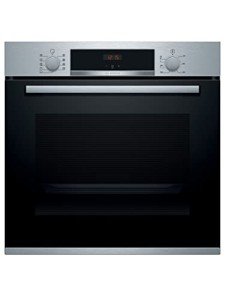10 Best Books On Intergrated Cooker

The Integrated Cooker: A Comprehensive Guide to Modern Cooking Solutions
The development of kitchen appliances has reinvented food preparation and cooking methods, making meal preparation more effective and enjoyable. Amongst these innovations, the integrated cooker stands apart as a versatile and space-saving addition to modern kitchen areas. This post looks into the various aspects of integrated cookers, consisting of types, benefits, functions, and a contrast with conventional cooking approaches.
What is an Integrated Cooker?
An integrated cooker is a compact cooking appliance that combines multiple cooking functions into one unit. Typically built into kitchen cabinetry, these cookers are developed to save space while boosting kitchen visual appeals. They typically integrate a variety of performances, such as baking, barbecuing, steaming, and even pressure cooking.
Key Features of Integrated Cookers
- Multi-Functionality: Integrated cookers can perform different cooking jobs, getting rid of the requirement for multiple appliances.
- Space-Saving Design: These cookers fit effortlessly into kitchen systems, making them ideal for contemporary homes with restricted space.
- Advanced Technology: Many integrated cookers come geared up with smart innovation, such as programmable settings, touch-screen controls, and connection choices.
- Energy Efficiency: Built with contemporary materials and style, they frequently consume less energy compared to conventional cooking techniques.
Kinds Of Integrated Cookers
The marketplace uses different kinds of integrated cookers, each with its unique set of functions and functionalities. Here are the most common types:
| Type | Description | Example Use |
|---|---|---|
| Built-in Ovens | Ovens that are fitted into wall systems or cabinets | Baking bread, roasting meats |
| Induction Hobs | Cooktops that utilize electro-magnetic energy to heat pots and pans | Rapidly boiling water, sautéing |
| Steam Ovens | Appliances that prepare food utilizing steam for healthier outcomes | Steaming veggies, fish |
| Microwave Ovens | Integrated microwaves for fast heating and cooking | Reheating leftovers, making popcorn |
| Combination Ovens | A mix of traditional and steam cooking technologies | Baking while ensuring moisture retention |
Benefits of Using Integrated Cookers
Integrated cookers offer a host of advantages over conventional cooking tools. Below are a few of the crucial advantages:
- Space Efficiency: Ideal for compact kitchen areas, integrated cookers make use of vertical areas successfully.
- Streamlined Cooking Process: With several functions offered, users can transition from one cooking approach to another with minimal effort.
- Enhanced Aesthetics: Many integrated cookers been available in streamlined styles that blend well with contemporary kitchen design.
- Enhanced Cooking Control: Programmable features enable exact cooking, guaranteeing much better meal outcomes.
Integrated Cookers vs. Traditional Cooking Appliances
When thinking about meal preparation choices, it is important to weigh the benefits of integrated cookers versus traditional cooking appliances. Below is a contrast chart:
| Feature | Integrated Cooker | Traditional Appliances |
|---|---|---|
| Area Efficiency | High | Lower |
| Multi-Functionality | Yes | No (requires numerous appliances) |
| Energy Consumption | Often lower | Can be higher |
| Cooking Speed | Faster (especially with induction) | Varies |
| Style | Modern and sleek | Differs extensively |
The integrated cooker is a forward-thinking appliance that satisfies the demands these days's busy lifestyle. Its multiplicity of functions, space-saving design, and sleek looks make it a worthwhile investment for any contemporary kitchen.
For those aiming to conserve time, area, and effort in meal preparation, integrated cookers offer an exceptional service that improves the cooking experience while providing yummy, well-prepared meals.
Regularly Asked Questions (FAQs)
1. What is image source of an integrated cooker?
The rate of integrated cookers can differ widely, usually varying from ₤ 500 to ₤ 3,000 depending upon functions, brand name, and size.
2. How much upkeep do integrated cookers need?
Maintenance frequently includes routine cleansing of surfaces and checking for any software updates if they include clever innovation. It's advisable to follow the maker's guidelines.
3. Can I replace my existing oven with an integrated cooker?
Yes, integrated cookers can typically change traditional ovens, but it is vital to seek advice from a professional to make sure compatibility with your kitchen design.
4. Are integrated cookers difficult to set up?
Setup can be straightforward for those with DIY experience. However, working with a certified professional is recommended to make sure appropriate setup.
5. Who benefits most from utilizing an integrated cooker?
Families, time-pressed people, and those residing in compact apartments especially take advantage of the multi-functionality and space-saving design of integrated cookers.
In this age of convenience and performance, integrated cookers are redefining how we approach cooking. Whether you are a knowledgeable chef or a cooking amateur, incorporating this powerful device into your kitchen can significantly enhance your cooking experience.

